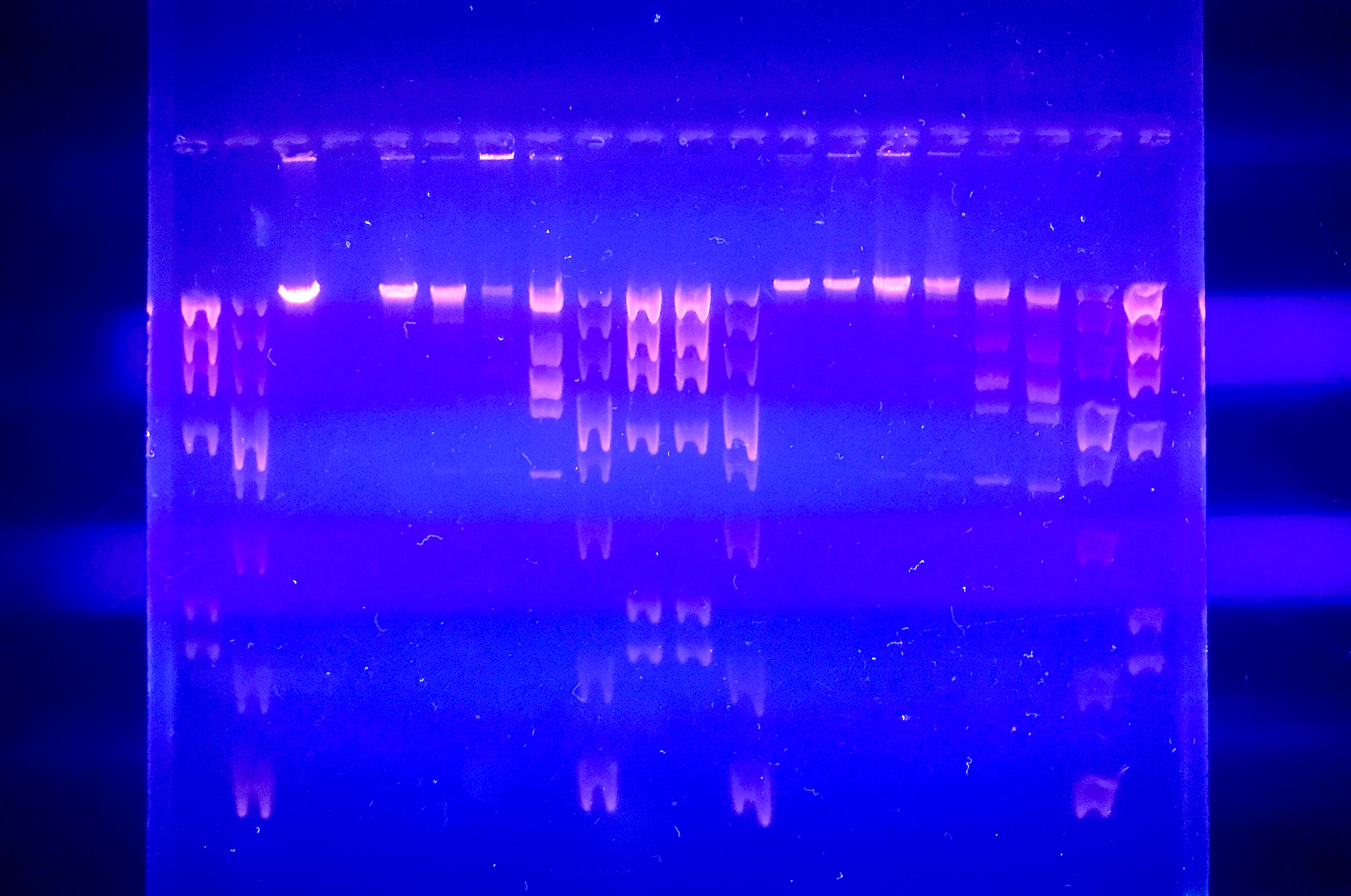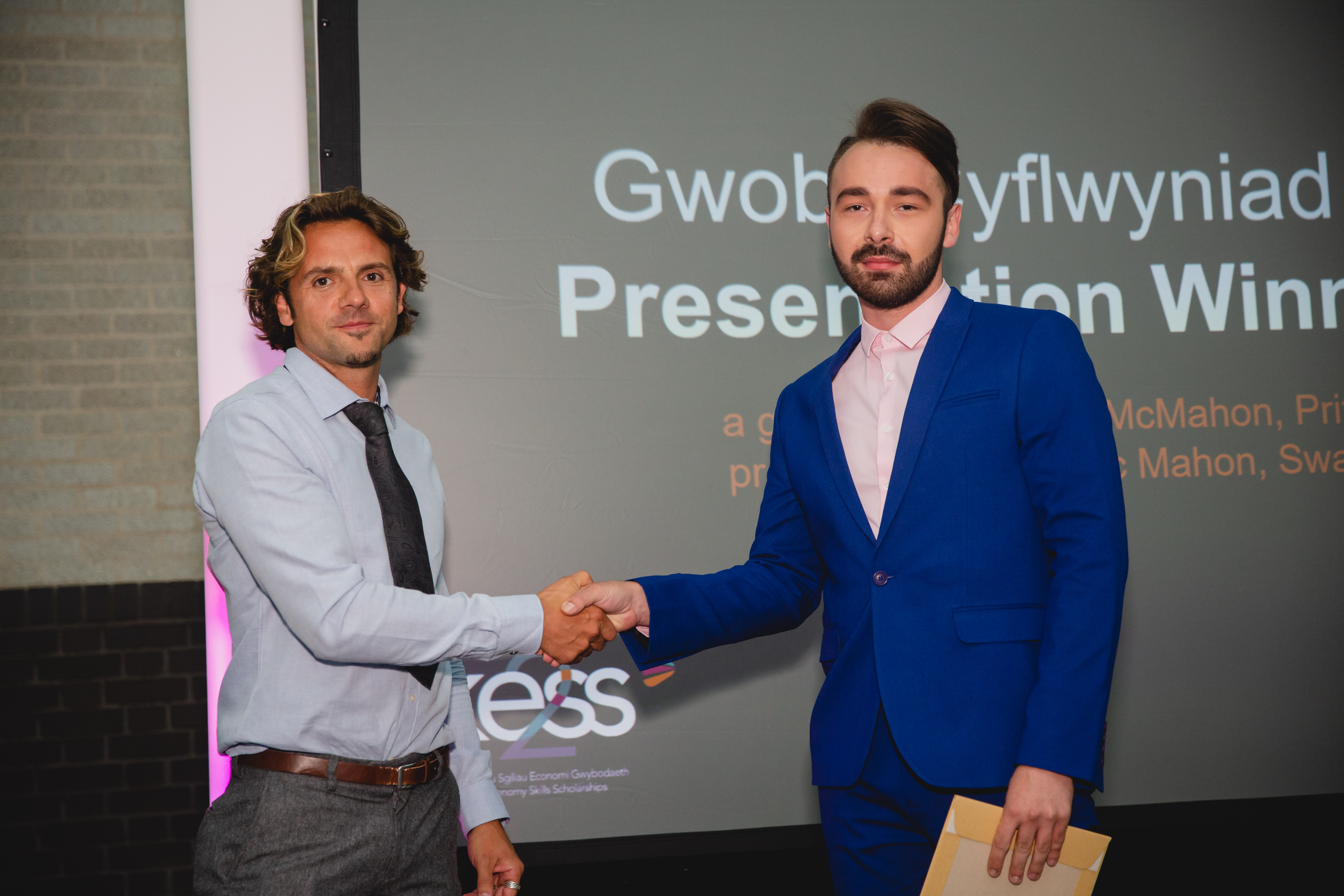
DR ADRIAN MIRONAS :
Health Services Researcher at Health Technology Wales
After completing my BSc in Biochemistry I pursued an MPhil in Molecular Biology funded through the first KESS programme. Subsequently, I pursued a PhD in Diagnostics and Disease Management in collaboration with the NHS and industry. My project looked at novel technologies from the functional genomics spectrum for the diagnosis and monitoring of respiratory diseases.
Respiratory diseases are leading factors of mortality and morbidity worldwide. The diagnosis of respiratory diseases often requires invasive techniques that not only cause a great distress to patients but often lack sensitivity and specificity and fail to identify early stages of disease. Therefore, those conditions remain underdiagnosed until they progress to late stages where the damage caused is irreversible.
INDUSTRY COLLABORATION
Having two collaborators from the public and industrial sector has helped me understand and conceptualise the importance of the research that I undertook for my PhD. This collaboration has provided me with a lot of experience for, and progressed my understanding in, the field. Through the collaboration with the NHS I have managed to develop new clinical skill sets that stood at the core of my PhD. The industrial collaboration helped me understand the importance of conducting research that is easily translatable to the real-world and is cost-effective. David Rooke said “A very successful outcome of all those years of hard work and new discoveries”
Functional genomics platforms provide global snapshots of the underlying molecular signatures that occur with the onset and progression of the disease and are capable of identifying biological markers that fluctuate with the disease state. The identification of those biological markers in easily accessible biofluids could revolutionise the way that respiratory diseases are diagnosed in order to allow early interventions, appropriate monitoring and responsiveness to different therapeutical interventions.
I currently work as a Health Services Researcher at Health Technology Wales, which is a national body funded by the Welsh Government and hosted within NHS Wales. My work is mainly focussed on the appraisal of medical health and care technologies with the scope of issuing independent and national guidance based on the best available evidence and expertise.
IMPACT
The implementation of biological markers in clinical practice shows the most sustainable avenue for diagnosing, monitoring and managing respiratory diseases as part of the public health sphere and could further allow the development of point of care testing to maximise those benefits. The translation of those discoveries in clinical practice could reflect improved patient care by facilitating early diagnosis as well as allowing for personalised medicine interventions through the selection of the most appropriate therapeutical intervention for a given patient. The potential impact associated with the translation of this project could be associated with a decrease in mortality and morbidity, increased survival and improved quality of life for the patients suffering from respiratory diseases.

The image shows how plasmid DNA was cut by an enzyme into various fragments. Agarose gel electrophoresis is a widely-employed technique for visualising DNA fragments as it acts like a “sieve” where the different fragments transiently migrate in electrical field and are separated according to size. The bigger the fragments are, the slower the migration and distance travelled from the top of the gel. A dye is intercalated with the DNA fragments to make them visible under ultraviolet light. This image was submitted as part of KESS 2’s Research Images Competition at the 2018 Annual Event.
KESS 2 PARTICIPATION HIGHLIGHTS
During both my MPhil and PhD I thoroughly enjoyed participating in all the events organised by the KESS 2 team. I have had the opportunity to attend several Transnational KESS 2 Grad. Schools in Portugal, Belgium, Wales and Sweden as well as the residential KESS 2 Grad. School and KESS 2 Annual Events.
In addition to offering me the best platform to develop professionally, KESS 2 helped me to develop personally as an individual within what I like to call the “KESS 2 Family”. Through the participation at the Transnational KESS 2 Grad. Schools and Annual Events, I had the opportunity to showcase and disseminate my research to the wider community of stakeholders and other researchers as well as network and make connections with researchers around the world.
Presenting my research and winning poster and presentation awards is a living testament of how I have been supported and nurtured during the course of my education so as to develop crucial sets of skills that stand at the core of every professional. I could not recommend the KESS 2 programme enough and I hope all my peers get the opportunity to experience a similar journey that I had while undertaking my postgraduate research with KESS 2.

Adrian winning the award for Highly Commended Overall Presentation at the KESS 2 Annual Event in Cardiff, 2018.
RESEARCH POSTER

Knowledge Economy Skills Scholarships (KESS 2) is a pan-Wales higher-level skills initiative led by Bangor University on behalf of the HE sector in Wales. It is part-funded by the Welsh Government’s European Social Fund (ESF) convergence programme for West Wales and the Valleys. For further information about how your organisation could benefit from participating in KESS 2, please contact the KESS 2 Central team at Bangor at: kess2@bangor.ac.uk










